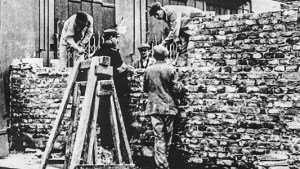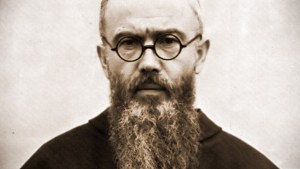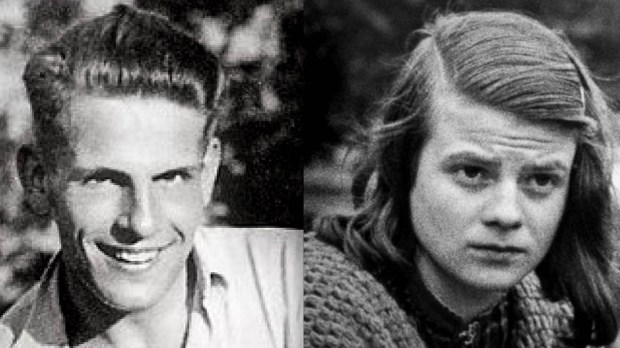Christoph Probst was born on November 6, 1919, in Bavaria, Germany. His dad, Herman Probst, was a scholar who specialized in Asian culture, Eastern religions, and Sanskrit. Herman maintained an intellectual environment at home and Christoph thrived within it.
However, inside the Probst home all was not peaceful and content. Christoph’s parents divorced when he was still a young boy, and his father remarried Elise Jaffee, who was Jewish. Shortly after his second marriage, Herman Probst committed suicide. How this affected Christoph is undocumented, but we know that around this time his contempt for Nazi ideology was growing stronger.
There was some money available, and Christoph was admitted to a boarding school at Landheim Schondorf, a school mostly devoted to the fine arts. The school refused to support Nazi ideas. It was here that Christoph met a young man named Alexander Schmorell.
Alexander had been born in the Ural Mountains of Russia and had come to Germany with his father when his mother died. Christoph and Alexander had much in common; both young men had lost parents. Upon graduating from high school, the two close friends were required to enter the National Labor Service.
Upon leaving the Labor Service, Christoph met and married Herta Dohm. They would have three children, Michael, Vincent, and Katherina. Christoph then entered the University of Munich to study medicine. It was during this time that he and his best friend, Alexander, met up with Hans Scholl, the founder of the White Rose. They all thought alike. They despised Adolf Hitler and hated Nazism.
The name White Rose signified non-violence and peaceful protest. These youth wanted to exert intellectual resistance to the Third Reich. In March of 1942, the White Rose began their clandestine assault against the Nazi regime. Their weapon of attack was the leaflet. They began mailing the leaflets to random names they picked from the phone book. They also tried to find doctors, lawyers, musicians, and scholars.
Then they began leaving them around college campuses such as the University of Hamburg and their school, the University of Munich. The leaflets urged the German citizens to fight back against the tyrannical Nazis.
Christoph joined the group after they had started distributing the leaflets. The group tried their best to keep Christoph in a low-profile position. He did not even write leaflets. He was the only one of the group married with children and they all wanted to do their best to protect his family. So did he.
Christoph had not been born into a specific religion but he always was drawn to religion and understanding of the existence of God. His friends were Catholic and their faith influenced him greatly. Soon, he would embrace it fully.
Soon the White Rose had produced and distributed five leaflets. The distribution of the leaflets had spread from Munich to other cities. Over 15,000 leaflets were used to attack Nazi crimes, oppression, and the mass murder of the Jews. Anyone discovered to be a member of the White Rose was quickly at a top spot on the Nazi wanted list.

Read more:
How two Polish doctors outsmarted the Nazis by engineering a fake typhus outbreak
Christoph finally lent his hand to the leaflet production by designing the layout for the sixth one.
It was this leaflet that Hans Scholl had in his pocket when he was arrested on February 18, 1943. It would prove to be the only evidence of Christoph’s involvement with the White Rose. That day, Hans and his sister Sophie Scholl were distributing the leaflets on campus when someone spotted them. The man, being a “good Nazi,” quickly reported them to the authorities. The Gestapo took them into custody. Hans and Sophie were searched and the leaflet was found. Handwriting samples led them to Christoph.
Hans, Sophie, and Christoph were interrogated relentlessly by the Gestapo and then taken to the People’s Court. The date was February 22, 1943. They were accused of treason and sentenced to death. German law stated that they should have a 90-day wait before execution. It made no difference in the “People’s Court.” They would die that very day.
Christoph, born into no religion, asked if a Catholic priest could visit him. He requested to be baptized and was received into the faith. Sometime during the following hour, he and his two friends, Hans and Sophie, were guillotined.
Christoph Probst, please pray for us.

Read more:
5 Courageous saints who were sent to Nazi concentration camps

